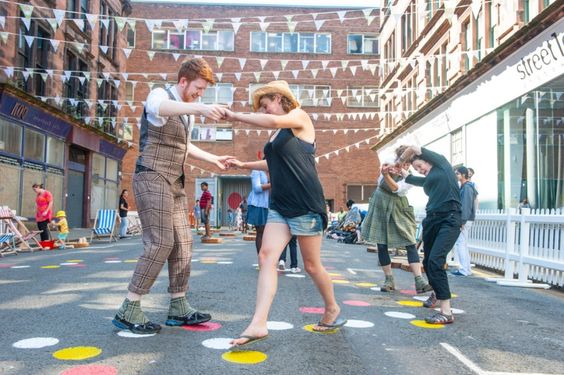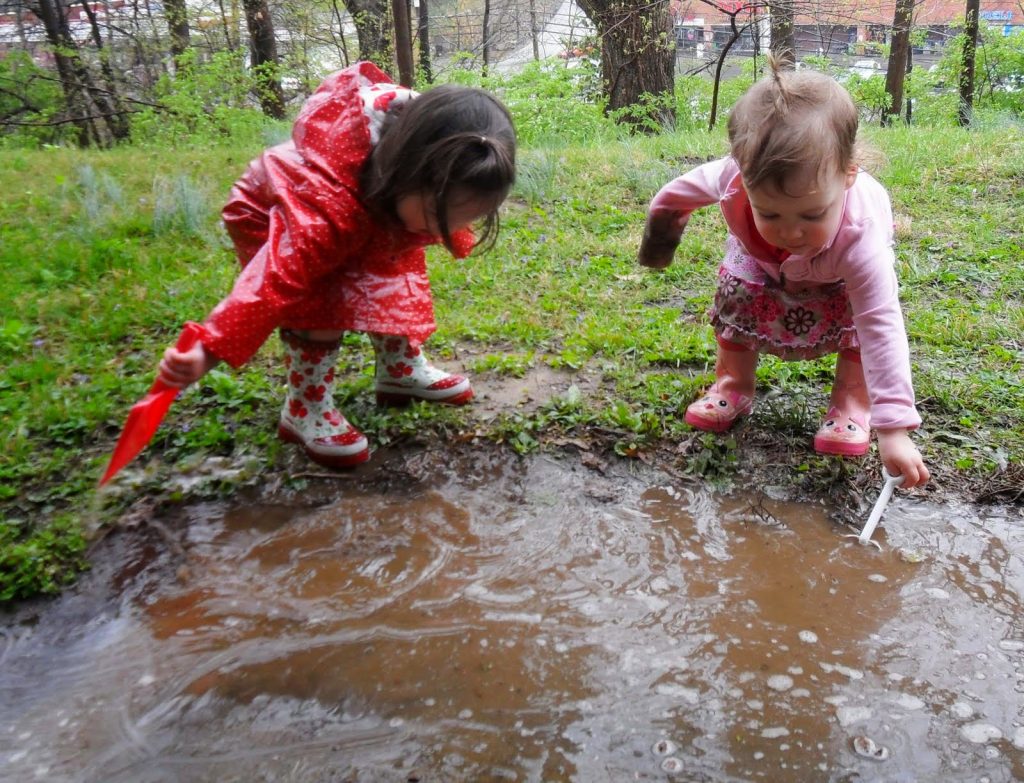Because of the very contemporary nature of these issues, much of the best material on the social geographies (broadly defined) of recession and austerity is only beginning to be formally published, but much is accessible through newspaper columns and blogs, both by academics and by others.
Previous versions of this list are accessible here and here, but I hope I’ve included all I’ve previously referenced in this updated and consolidated list.
This page doesn’t look very pretty – I may tidy it up sometime, but I think, at least, all the links work. Let me know (alison.stenning@ncl.ac.uk) if they don’t – and let me know if you know of publications I could add. Thanks!
There’s an article about some ‘austerity’ blogs here: http://www.theguardian.com/media/shortcuts/2013/jul/07/rise-and-rise-of-austerity-blog
These are some of the most interesting, and some other links that document the experience of austerity in the UK today.
Geographer Danny Dorling writes widely about inequality, poverty, and most recently, austerity. Search his most recent publications here: http://www.dannydorling.org
http://agirlcalledjack.com – Blog by Jack Monroe who has published particularly about food and food poverty; her Guardian columns (and recipes!) are available here: http://www.theguardian.com/profile/jack-monroe
http://katebelgrave.com – “Talking with people dealing with public sector cuts”. Kate Belgrave’s Guardian columns are here: http://www.theguardian.com/profile/kate-belgrave
http://mumvausterity.blogspot.co.uk – Bernadette Horton, “a mum of 4 fighting everyday battles against austerity – and hoping to win!”
From Guardian Witness, personal accounts (https://witness.theguardian.com/assignment/52933b6ee4b0fc237c3f02c9) and Patrick Butler’s Cuts Blog (http://www.theguardian.com/society/patrick-butler-cuts-blog).
Patrick Butler is The Guardian’s editor of society, health and education policy. His articles can be found here: http://www.theguardian.com/profile/patrickbutler.
The Telegraph’s ‘Recession Tour” of 2008: http://www.telegraph.co.uk/finance/recession/uk-recession-telegraph-tour/
The journalist Mary O’Hara’s book Austerity Bites ”chronicles the true impact of austerity on people at the sharp end, based on her ‘real-time’ 12-month journey around the country just as the most radical reforms were being rolled out in 2012 and 2013” (http://www.austeritybitesuk.com/). Her Guardian page (http://www.theguardian.com/profile/maryohara) has links to all sorts of different articles on related issues (welfare, legal aid, disability, mental health etc.). You can also find her discussing “Austerity Economies and Mental Health” on Madness Radio http://www.madnessradio.net/austerity-economies-and-mental-health-mary-ohara-madness-radio/
In addition, there are numerous policy and charity reports on the effects and experiences of austerity and recession.
The Centre for Human Rights Practice at Warwick University has compiled a very comprehensive list of “Reports on the Impact of Public Spending Cuts on Different Disadvantaged Groups within the UK” which can be found here
Others include:
Real Life Reform – “an important and unique study that tracks over a period of 18 months how people are living and coping with welfare reforms across the North of England” – there are six reports available here: http://www.northern-consortium.org.uk/reallifereform
The Association of North East Council’s report on The Impact of Welfare Reform in the North East: http://www.northeastcouncils.gov.uk/curo/downloaddoc.asp?id=601
Voices of Britain – http://voicesofbritain.com – “A Snapshot of the Condition of Britain in 2013” from the Institute of Public Policy Research
The Family and Parenting Institute’s work on Families in the Age of Austerity: http://www.familyandparenting.org/our_work/Families-in-the-Age-of-Austerity/Family+Matters.htm
The charity Gingerbread has research the effect of austerity on single parents in a project called Paying the price: Single parents in the age of austerity (http://www.gingerbread.org.uk/content/1813/Paying-the-price).
Relate and a range of other organisations produced a report on Relationships, Recession and Recovery: The role of relationships in generating social recovery (http://www.relate.org.uk/policy-campaigns/publications/relationships-recession-and-recovery-role-relationships-generating-social-recovery)
The Campaign for the Elimination of Discrimination against Women (CEDAW) Working Group for the North East produced this report on the impact of austerity measures on women in the North East: http://wbg.org.uk/pdfs/NEWN-impact-of-austerity-measures-case-study-(June-2013)-.pdf
Other sites/organisations include the Joseph Rowntree Foundation, Shelter, Poverty and Social Exclusion (http://www.poverty.ac.uk) and the New Economics Foundation. Search for these online and see what you can find.
The Joseph Rowntree Foundation has continued to analyse the reform of welfare budgets, including in this report on living standards: http://www.jrf.org.uk/publication/will-2015-summer-budget-improve-living-standards-2020.
For an Irish perspective, have a look at http://irelandafternama.wordpress.com – a blog written mostly by geographers on Ireland’s experience of financial crisis and austerity.
There is a useful summary of the 2012 reforms here: http://en.wikipedia.org/wiki/Welfare_Reform_Act_2012.
Other summaries can be found here:
The government: https://www.gov.uk/government/policies/simplifying-the-welfare-system-and-making-sure-work-pays
Child Poverty Action Group: http://www.cpag.org.uk/sites/default/files/CPAG_factsheet_the%20cuts_May13.pdf
Local Government Information Unit: http://www.lgiu.org.uk/wp-content/uploads/2012/03/Welfare-Reform-Act-20121.pdf
Some of the emerging academic and related work…
Allen, K., Tyler, I. and De Benedictis, S. (2014). Thinking with ‘White Dee’: The gender politics of ‘austerity porn’, Sociological Research Online, 19/3, http://www.socresonline.org.uk/19/3/2.html.
Atkinson, W., Roberts, S. & Savage, M. (eds.) (2012) Class Inequality in Austerity Britain, Palgrave MacMillan: Basingstoke. (The first chapter is available to download here: http://www.palgrave.com/PDFs/9781137016379.pdf)
Bailey, N., Bramley, G. and Hastings, A. (2015) Symposium Introduction: Local responses to ‘austerity’, Local Government Studies, ahead-of-print.
Bambra C. (2013) ‘All in it together’? Health inequalities, austerity and the ‘Great Recession’, Health in Austerity, Demos: London. http://www.demos.co.uk/publications/healthinausterity [see also a brief report at http://classonline.org.uk/blog/item/paying-the-highest-price-austerity-will-accelerate-area-health-inequalities]
Bambra, C. and Garthwaite, K. (2015) Austerity, welfare reform and the English health divide, Area, 47/3, 341-343.
Beatty, C. and Fothergill, S. (2013) Hitting the Poorest Places Hardest: The Local and Regional Impact of Welfare Reform, http://www.shu.ac.uk/research/cresr/sites/shu.ac.uk/files/hitting-poorest-places-hardest_0.pdf
Brown, G. (2013) The revolt of aspirations: contesting neoliberal social hope, ACME http://www.acme-journal.org/vol12/Brown2013.pdf
Clayton, J., Donovan, C. and Merchant, J. (2015) Distancing and limited resourcefulness: Third sector service provision under austerity localism in the north east of England, Urban Studies, ahead-of-print.
Clayton, J., Donovan, C. and Merchant, J. (2015) Emotions of austerity: Care and commitment in public service delivery in the North East of England, Emotion, Space and Society, 14, 24-32.
Copeland, A., Kasim, A. and Bambra, C. (2015). Grim up North or Northern grit? Recessions and the English spatial health divide (1991–2010). Journal of Public Health, 37/1, 34-39.
Crossley, S. and Slater, T. (2014) Articles: Benefits Street: territorial stigmatisation and the realization of a ‘(tele)vision of divisions’, Values and Value Blog, https://values.doc.gold.ac.uk/blog/18/.
Donald, B., Glasmeier, A., Gray, M. and Lobao, L. (2014) Austerity in the city: economic crisis and urban service decline? Cambridge Journal of Regions, Economy and Society, 7/1, 3-15.
Dowler, E. and Lambie-Mumford, H. (2014) Rising use of “food aid” in the United Kingdom, British Food Journal, 116/9, 1418-1425.
Dowler, E. and Lambie-Mumford, H. (2015) How can households eat in austerity? Challenges for social policy in the UK, Social Policy and Society, 14/3, 417-428.
Dowler, E. and Lambie-Mumford, H. (2015) Introduction: Hunger, food and social policy in austerity, Social Policy and Society, 14/3, 411-415.
Flaherty, J. and Banks, S. (2013) In whose interest? The dynamics of debt in poor households, Journal of Poverty & Social Justice, 21/3, 219-232.
Fraser, A., Murphy, E. and Kelly, S. (2013) Deepening neoliberalism via austerity and ‘reform’: The case of Ireland, Human Geography, 6, 38-53.
Garthwaite, K., Collins, P. and Bambra, C. (2015) Food for thought: An ethnographic study of negotiating ill health and food insecurity in a UK foodbank, Social Science & Medicine, 132, 38-44.
Hall, S. M. (2015) Everyday ethics of consumption in the austere city, Geography Compass, 9/3, 140-151.
Hall, S. M. (2015). Everyday family experiences of the financial crisis: getting by in the recent economic recession. Journal of Economic Geography, online first.
Hall, S. M. and Jayne, M. (2015) Make, mend and befriend: geographies of austerity, crafting and friendship in contemporary cultures of dressmaking in the UK, Gender, Place & Culture, ahead-of-print.
Hamnett, C. (2010) Moving the poor out of central London? The implications of the coalition government 2010 cuts to Housing Benefits, Environment and Planning A, 42/12, 2809-2819.
Hamnett, C. (2011) The reshaping of the British welfare system and its implications for geography and geographers, Progress in Human Geography, 35/2, 147-152.
Hamnett, C. (2013) Shrinking the welfare state: the structure, geography and impact of British government benefit cuts, Transactions of the Institute of British Geographers, Early View Online.
Hancock, L. and Mooney, G. (2013) “Welfare ghettos” and the “Broken Society”: Territorial stigmatization in the contemporary UK, Housing, Theory and Society, 30/1, 46-64.
Harrison, E. (2013) Bouncing back? Recession, resilience and everyday lives, Critical Social Policy, 33/1, 97-113.
Hodkinson, S. and Robbins, G. (2013) The return of class war conservatism? Housing under the UK coalition government, Critical Social Policy, 33/1, 57-77.
Horton, J. (2015) Young people and debt: getting on with austerities. Area, online first.
Jacobs, K. and Manzi, T. (2013) New localism, old retrenchment: The “Big Society”, housing policy and the politics of welfare reform, Housing, Theory and Society, 30/1, 29-45
Jensen, T. (2014). Welfare commonsense, poverty porn and doxosophy, Sociological Research Online, 19/3, http://www.socresonline.org.uk/19/3/3.html.
Jensen, T. and Tyler, I. (2013) Austerity parenting: New economies of parent citizenship, Studies in the Maternal, 4/2 http://www.mamsie.bbk.ac.uk/back_issues/4_2/editorial.html
Jensen, T. and Tyler, I. (2015) ‘Benefits broods’: The cultural and political crafting of anti-welfare commonsense, Critical Social Policy, online first.
Jones, G., Meegan, R., Kennett, P. and Croft, J. (2015) The uneven impact of austerity on the voluntary and community sector: A tale of two cities, Urban Studies, ahead-of-print.
Kennett, P., Jones, G., Meegan, R. and Croft, J. (2015) “Recession, austerity and the ‘Great Risk Shift’: Local government and household impacts and responses in Bristol and Liverpool, Local Government Studies, ahead-of-print.
[The two papers above, and Meegan et al (2014) below, come from a research project on “The uneven impact of recession on cities and households: Bristol and Liverpool compared”. More details and publications can be found here: http://www.bristol.ac.uk/sps/esrcunevenimpact/. Their website has links to a range of background documents, including a review of ‘grey literatures’ on the “Impact of the Recession and Period of Austerity on Households”, http://www.bris.ac.uk/sps/esrcunevenimpact/findingssofar/otherpapers.html.]
Koch, I. (2014) ‘A policy that kills’: The bedroom tax is an affront to basic rights, http://blogs.lse.ac.uk/politicsandpolicy/a-policy-that-kills-the-bedroom-tax-is-an-affront-to-basic-rights/
Lambie-Mumford, H. (2013) ‘Every town should have one’: emergency food banking in the UK. Journal of Social Policy, 42/1, 73-89.
Lambie-Mumford, H. and Jarvis, D. (2012) The role of faith-based organisations in the Big Society: opportunities and challenges, Policy Studies, 33/3, 249-262.
Loopstra, R., et al. (2015) Austerity, sanctions, and the rise of food banks in the UK.” British Medical Journal h1775. http://www.bmj.com/content/350/bmj.h1775.short
MacDonald, R., Shildrick, T. and Furlong, A. (2014). ‘Benefits Street’ and the myth of workless communities, Sociological Research Online, 19/3, http://www.socresonline.org.uk/19/3/1.html.
Meegan, R., Kennett, P., Jones, G. and Croft, J. (2014) Global economic crisis, austerity and neoliberal urban governance in England, Cambridge Journal of Regions, Economy and Society, 7/1, 137-153.
O’Hara, M. (2014) Austerity Bites: A Journey to the Sharp End of Cuts in the UK, Policy Press: Bristol.
Pearce, J. (2013) Commentary: Financial crisis, austerity policies, and geographical inequalities in health, Environment and Planning A, 45/9, 2030-2045.
Purdam, K., Garratt, E. and Esmail, A. (2015) Hungry? Food insecurity, social stigma and embarrassment in the UK, Sociology, ahead of print.
Ridge, T. (2013) ‘We are all in this together’? The hidden costs of poverty, recession and austerity policies on Britain’s poorest children, Children & Society, 27/5, 406-417.
Schrecker, T. and Bambra, C. (2015) How Politics Makes Us Sick: Neoliberal Epidemics, Palgrave Macmillan: London.
Schrecker, T. and Bambra, C. (2015) Neoliberal epidemics: the spread of austerity, obesity, stress and inequality, The Conversation, http://theconversation.com/neoliberal-epidemics-the-spread-of-austerity-obesity-stress-and-inequality-46416
Slater, T. (2011) From ‘criminality’ to marginality: Rioting against a broken state, Human Geography, 4/3, http://www.geos.ed.ac.uk/geography/homes/tslater/RiotingAgainstABrokenState.pdf
Slater, T. (2014) The myth of ‘Broken Britain’: welfare reform and the production of ignorance, Antipode 46/4, 948-969.
Stenning, A. (2013) The Costs of Austerity [blog post] https://blogs.ncl.ac.uk/alisonstenning/the-costs-of-austerity/
Stuckler, D. and Basu, S. (2013) The Body Economic: Why Austerity Kills. Basic Books.
Tyler, I. (2013) The riots of the underclass? Stigmatisation, mediation and the government of poverty and disadvantage in neoliberal Britain, Sociological Research Online, 18(4) http://www.socresonline.org.uk/18/4/6.html
See also the themed issue of Critical Social Policy on “Social Policy in an Age of Austerity” in August 2012 (32/3)





